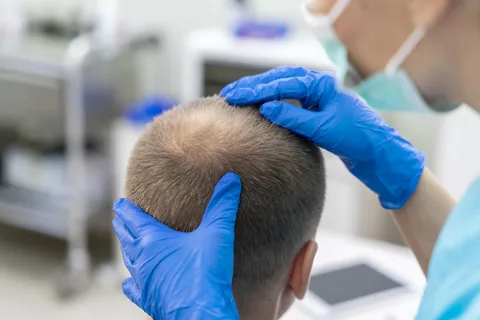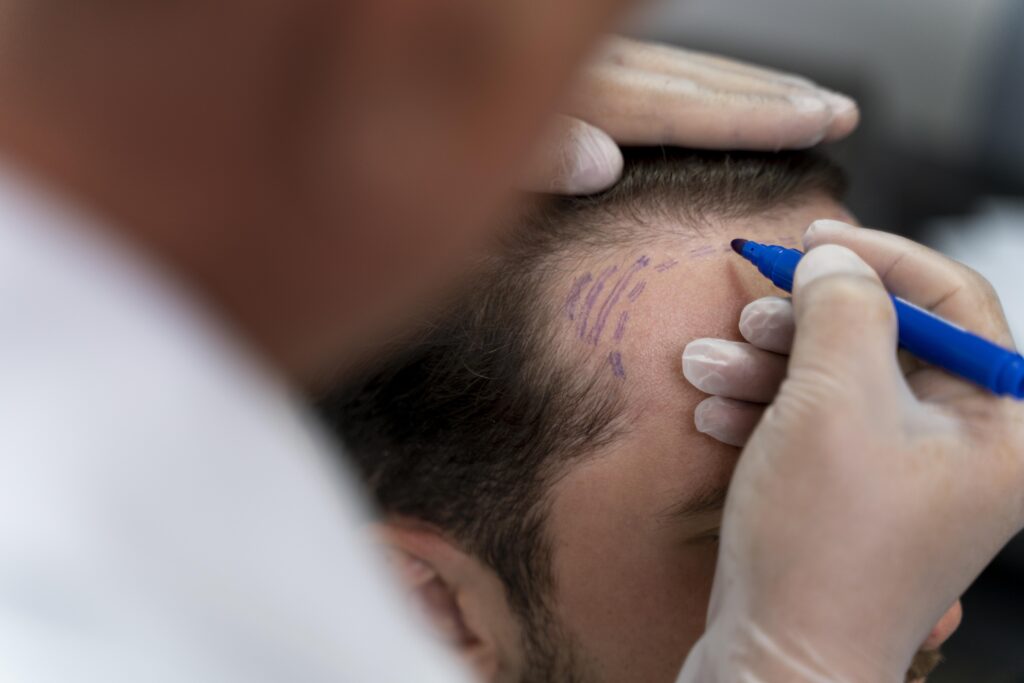Wondering if you’re at the right stage in life for hair restoration? What Is the Best Age for a Hair Transplant? Explains the ideal timing for this procedure to maximize natural results and long-term success.
This guide helps you understand age-related factors, hair loss patterns, and expert recommendations, empowering you to make an informed decision.

With trusted medical insights, you’ll learn how to achieve effective, lasting hair growth and regain confidence at the right time for your unique situation.
READ MORE: Can Progesterone Cause Hair Loss? What You Need to Know
What Is the Best Age for a Hair Transplant?
Hair transplant surgery involves relocating healthy hair follicles from a donor site (usually the back of the scalp) to areas affected by hair loss. The two common techniques are:
- Follicular Unit Extraction (FUE): Individual follicular units are extracted and transplanted, resulting in minimal scarring and faster recovery.
- Follicular Unit Transplantation (FUT): A strip of scalp is removed and dissected into follicular units before transplantation.
These procedures are minimally invasive and designed to promote natural hair regrowth in thinning or balding areas.
Considering Age for Hair Transplant: Factors to Keep in Mind
Why Age Matters in Hair Transplantation
Hair loss progresses differently among individuals depending on genetics, health, and lifestyle. The decision about timing is crucial because:
- Younger patients may experience ongoing hair loss, affecting long-term results.
- Older patients may have stable hair loss patterns but limited donor hair availability.
- Early intervention might prevent extensive baldness but requires careful planning.
Typical Age Ranges and Considerations
| Age Group | Considerations | Recommendations |
|---|---|---|
| Under 25 Years | Usually recommended to delay surgery and consider medical therapy first. Careful evaluation is essential. | Good candidates if a stable donor supply and realistic expectations. |
| 25 to 40 Years | Hair loss often stabilizes. | Hair loss patterns are generally stable. |
| Over 40 Years | Candidates often have a mature baldness pattern and good donor hair for transplantation. | Candidates often have mature baldness pattern and good donor hair for transplantation. |
Role of Medical Therapy and Non-Surgical Options
For younger patients or those not ready for surgery, non-surgical options such as minoxidil, finasteride, or PRP (Platelet-Rich Plasma) therapy may help slow hair loss and improve hair quality.

The Hair Transplant Procedure at Dr. Rana Irfan’s Clinic
Step-by-Step Overview
- Initial Consultation: Assessment of hair loss, scalp condition, and patient goals.
- Treatment Planning: Designing hairline and selecting technique (mostly FUE for minimally invasive results).
- Donor Hair Extraction and Implantation: Transplanting follicles with precision to mimic natural growth.
- Recovery: Most patients resume normal activities within days, with new hair growth visible after several months.
Expected Outcomes and Timeline
- Initial shedding of transplanted hairs is normal in the first few weeks.
- Noticeable regrowth starts around 3-4 months.
- Full results are typically observed between 9 to 12 months.
Pricing and Credentials
Hair transplant costs depend on factors like graft numbers and procedure complexity. At Dr. Rana Irfan’s Islamabad clinic, pricing is personalized following a detailed consultation to suit individual needs.
Dr. Rana Irfan’s credentials include:
- Certified by ABHRS
- Member of ISHRS
- Over 20 years of clinical experience
- Use of advanced FUE techniques ensures minimal scarring and natural results
Who Is an Ideal Candidate?
- Individuals with stable hair loss patterns
- Good donor hair supply available
- Realistic expectations about outcomes
- Commitment to follow post-operative care
